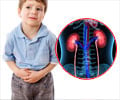International humanitarian agencies have agreed on a new set of guidelines to address the mental health and psychosocial needs of survivors
International humanitarian agencies have agreed on a new set of guidelines to address the mental health and psychosocial needs of survivors as part of the response to conflict or disaster.
The Inter-Agency Standing Committee (IASC) Guidelines on Mental Health and Psychosocial Support in Emergency Settings clearly state that protecting and promoting mental health and psychosocial well-being is the responsibility of all humanitarian agencies and workers.Until now, many people involved in emergency response have viewed mental health and psychosocial well-being as the sole responsibility of psychiatrists and psychologists.
"These new IASC guidelines are a significant step towards providing better care and support to people in disaster- and conflict-affected areas worldwide," said Dr. Ala Alwan, Assistant Director-General for Health Action in Crises at the World Health Organization.
Recent conflicts and natural disasters in Afghanistan, Indonesia, Sri Lanka and Sudan among many others involve substantial psychological and social suffering in the short term, which if not adequately addressed can lead to long-term mental health and psychosocial problems. These can threaten peace, people's human rights and development.
Yet, when communities and services provide protection and support, most individuals have been shown to be remarkably resilient. While this is increasingly recognised, many actors identified the need for a coherent, systematic approach that can be applied in large emergencies. The guidelines address this gap.
The guidelines have been published by the IASC, a committee that is responsible for world-wide humanitarian policy and consists of heads of relevant UN and other intergovernmental agencies, Red Cross and Red Crescent agencies, and NGO consortia. The guidelines have been developed by staff from 27 agencies through a highly participatory process.
Advertisement
The guidelines lay out the essential first steps in protecting or promoting people's mental health and psychosocial well-being in the midst of emergencies. They identify useful practices and flag potentially harmful ones, and clarify how different approaches complement one another.
Advertisement
The guidelines have a clear focus on social interventions and supports. They emphasize the importance of building on local resources such as teachers, health workers, healers, and women’s groups to promote psychosocial well-being. They focus on strengthening social networks and building on existing ways community members deal with distress in their lives.
The guidelines include attention to protection and care of people with severe mental disorders, including severe trauma-induced disorders, as well as access to psychological first aid for those in acute distress.
The guidelines stress that the way in which humanitarian aid is provided can have a substantial impact on people’s mental health and psychosocial well-being. Treating survivors with dignity and enabling them to participate in and organize emergency support is essential.
Coordination of mental health and psychosocial support is difficult in large emergencies involving numerous agencies. Affected populations can be overwhelmed by outsiders, and local contributions to mental health and psychosocial support are easily marginalised or undermined.
Dr. Bruce Eshaya-Chauvin, Head of the Health and Care Department at the International Federation of Red Cross and Red Crescent Societies, remarked: “Achieving improved psychosocial support for populations affected by crises requires coordinated action among all government and non-government and humanitarian actors. These guidelines give sensible advice on how to achieve that.”
"These guidelines now need to be transferred from paper into concrete action at the field level so that those affected by disasters and conflict will benefit from the work done on them. NGOs can play a major role in this regard." said Ms Manisha Thomas, acting Coordinator of the International Council of Voluntary Agencies.
These guidelines will be available in different languages and can be obtained from the IASC website
Source-ANI
LIN/J






